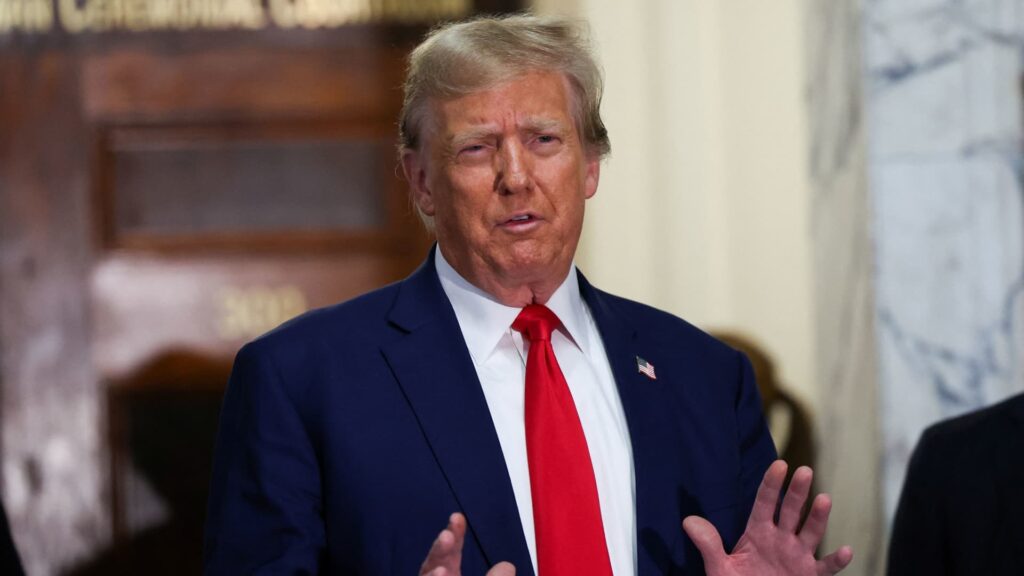A New York judge on Friday ordered Donald Trump to pay The New York Times and three of its reporters nearly $400,000 to cover their legal costs for a lawsuit filed by the former president that was dismissed last year.
Trump sued The Times and the reporters over a 2018 investigation into his finances and taxes that was based in part on confidential tax records. The resulting series of articles won a Pulitzer Prize, the most prestigious award in American journalism, in the category of explanatory reporting.
Among those articles was one titled, “Trump Engaged in Suspect Tax Schemes as He Reaped Riches from His Father.”
Times spokeswoman Danielle Rhoades Ha, in a statement to CNBC, said that the order for legal costs issued in Manhattan Supreme Court “shows that the state’s newly amended anti-SLAPP statute can be a powerful force for protecting press freedom.”
“The court has sent a message to those who want to misuse the judicial system to try to silence journalists,” said Rhoades Ha.
SLAPP is an acronym for “strategic lawsuit against public participation.”
CNBC has requested comment on the order from Trump’s lawyer, Alina Habba.
Trump’s suit, which had sought $100 million in damages, accused the newspaper and reporters of engaging in what he called an “insidious plot” with his niece, Mary Trump, to obtain his tax records for the articles. The suit alleged the defendants had “a personal vendetta” against Trump.
Judge Robert Reed tossed out Trump’s suit last May, saying that his claims “fail as a matter of constitutional law.”
“Courts have long recognized that reporters are entitled to engage in legal and ordinary news-gathering activities without fear of tort liability — as these actions are at the very core of protected first amendment activity,” Reed wrote.
Reed’s ruling last year included an order that Trump pay attorneys’ fees and other legal costs of the Times and the trio of reporters: Susanne Craig, David Barstow and Russ Buettner.
The Times then asked for costs totaling $229,921 for the newspaper, and $162,717 for the reporters, submitting invoices to substantiate that request.
Trump opposed the request, arguing that he should not have to pay anything, or that it should be significantly reduced because the invoice allegedly “included unjustified or duplicative work and exorbitant hourly rates,” Reed noted in his order Friday.
But Reed found that the requested amount was “reasonable.”
The judge cited the complex nature of the issues in the lawsuit, the number of claims, the defense attorneys’ reputation, the amount of money at stake, and the defense attorneys’ success in getting the case dismissed.
Read the full article here









